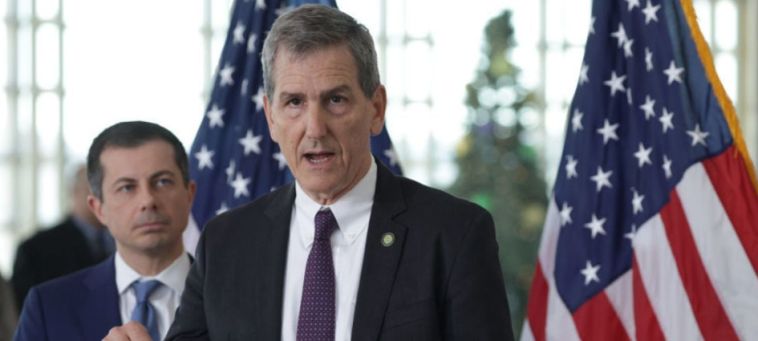Michael Whitaker, the Administrator of the Federal Aviation Administration (FAA), has announced his resignation just months after taking office. The decision comes amid escalating tensions with Elon Musk and SpaceX over regulatory disputes and broader challenges facing the aviation and aerospace industries.
A Short-Lived Tenure
Whitaker, who was confirmed as FAA Administrator earlier this year, cited personal reasons for his decision to step down. However, insiders suggest that mounting pressures related to disputes with SpaceX and delays in modernizing FAA operations contributed to his decision.
Whitaker was tasked with overseeing the nation’s complex aviation system, including the regulation of emerging aerospace technologies. His tenure was marked by contentious debates over safety standards, infrastructure modernization, and managing the increasing influence of private space exploration companies like SpaceX.
Clashes with Elon Musk and SpaceX
One of the most high-profile challenges Whitaker faced during his time at the FAA was an ongoing battle with SpaceX. Under Elon Musk’s leadership, SpaceX has pushed the boundaries of space exploration, often clashing with the FAA over launch approvals and safety regulations.
Earlier this year, Musk publicly criticized the FAA for what he described as “outdated and overly restrictive” policies that were stifling innovation. The tension between SpaceX and the FAA reached new heights following delays in the launch of Starship, SpaceX’s flagship spacecraft, due to FAA regulatory concerns.
While Whitaker defended the FAA’s oversight as necessary for public safety, Musk and other industry leaders argued that the agency’s approach was hampering progress in the burgeoning space industry.
Broader FAA Challenges
Whitaker’s resignation also comes at a time when the FAA is grappling with other significant challenges. The agency has faced criticism over delays in modernizing air traffic control systems, addressing pilot shortages, and managing a surge in drone activity.
These challenges have placed immense pressure on the agency, which must balance its commitment to safety with the demands of an evolving aviation landscape.
Industry and Political Reactions
Whitaker’s resignation has drawn mixed reactions from industry leaders and lawmakers. Supporters praised his efforts to navigate a challenging role, while critics pointed to his inability to resolve key disputes, particularly with SpaceX.
“Elon Musk’s relentless pressure on the FAA has put the agency in a tough spot,” said one aviation expert. “Michael Whitaker was caught in the middle of trying to enforce safety regulations while dealing with the ambitions of private space companies.”
Some lawmakers have called for reforms to streamline FAA operations and improve collaboration between regulators and private industry.
What’s Next for the FAA?
Whitaker’s departure leaves the FAA in a precarious position. The agency must now find a new leader to address pressing issues, including its relationship with the private space sector and the need for technological upgrades.
In the interim, the FAA will continue its regulatory oversight under acting leadership. However, the challenges highlighted during Whitaker’s short tenure are unlikely to subside, especially as SpaceX and other private companies push forward with ambitious goals for space exploration and travel.
Whitaker’s resignation serves as a stark reminder of the growing tension between regulatory agencies and private innovators in a rapidly changing aerospace industry.


